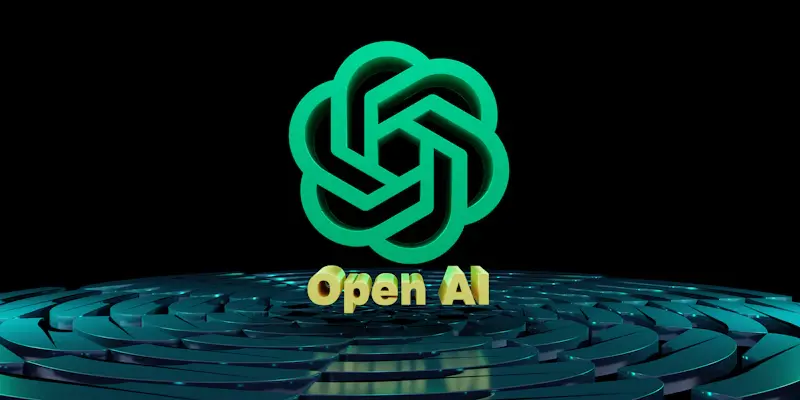The latest advancements in technology have dramatically changed the landscape of artificial intelligence, and OpenAI’s ChatGPT is no exception. Initially launched with support for four applications, ChatGPT has seen considerable developments, particularly highlighted during OpenAI’s “12 Days of OpenAI” event. These milestones mark a significant leap towards enabling the AI to conduct autonomous tasks on users’ computers.
Progress in Integration: Development Environments
IDEs Supported by ChatGPT
The new integrations now include a broader range of development environments, which play a vital role in enhancing the capabilities of AI-driven coding assistance. From BBEdit to MatLab, Nova, and Script Editor, these additions significantly broaden the scope of ChatGPT’s functionalities. Furthermore, TextMate, VS Code for VSCode Insiders, and VSCodium enrich ChatGPT’s repertoire, allowing developers to streamline their workflows more efficiently without switching between different tools.
The road OpenAI is paving involves integrating comprehensive development environments, including Cursor, WindSurf, and the JetBrains family of IDEs. These IDEs, such as Android Studio, AppCode, CLion, DataGrip, GoLand, IntelliJ IDEA, PHPStorm, PyCharm, RubyMine, RustRover, and WebStorm, offer specialized platforms for various development needs. This extensive support ensures that developers can use ChatGPT for coding assistance without compromising the personalized environments they are accustomed to. Additionally, terminal apps like Warp and Prompt have been added to the mix, illustrating OpenAI’s dedication to covering all aspects of the development process.
Enhancing User Experience in Development
The integration of these applications means that ChatGPT can now assist with code generation, debugging, and context-specific suggestions, leading to an enhanced coding practice. For instance, in Visual Studio Code, ChatGPT’s presence can eliminate many repetitive tasks, allowing developers to focus on more critical aspects of software creation. By understanding the context within various projects, ChatGPT offers more intelligent, context-aware assistance, facilitating efficient problem-solving.
Kevin Weil, OpenAI’s Chief Product Officer, emphasized that desktop apps are fundamental to transforming ChatGPT into a more interactive and autonomous tool. This transformation allows the AI to interact seamlessly with on-screen activities and automate tasks, creating opportunities for developers to improve productivity significantly. Such integration not only reduces the time spent on mundane tasks but also enhances the accuracy and quality of code, fostering an environment of innovation and efficiency.
Broader Application Scope
Productivity App Integrations
ChatGPT’s enhancements are not limited to development environments; it now includes integration with widely-used productivity apps like Apple Notes, Notion, and Quip. This means that users can leverage advanced voice mode to interact with these applications, offering a hands-free experience that supports multitasking. The capability to understand and process contextual information within projects allows for more streamlined workflows, whether organizing notes, managing projects, or collaborating with teams.
The integration with productivity apps necessitates explicit user permissions, ensuring that privacy and data security are upheld. This layer of security and autonomy assures users that ChatGPT will respect their boundaries while providing high-quality assistance. Users can expect the AI to aid in note-taking, content creation, and project management while maintaining the integrity of their personal information. These integrations are set to revolutionize how professionals interact with their productivity tools daily.
Moving Toward More Agentic AI
ChatGPT’s progression towards a more agentic role mirrors similar advancements in other AI technologies like GitHub Copilot. The trajectory of ChatGPT aims to enhance user experience by making the AI a more constant companion in professional tasks. For instance, through its capabilities to understand and generate contextually relevant content, ChatGPT becomes an invaluable asset not only in coding but in any productivity-driven environment.
This strategic move by OpenAI reveals a commitment to making ChatGPT a more powerful tool, capable of autonomously handling a wide range of applications. As more integrations are released and refined, the dependency on AI for routine tasks is likely to increase. This emerging trend suggests a future where AI tools become indispensable in our everyday tasks, transforming AI from a mere assistant to an independent agent in professional and personal settings.
Future Prospects and User Enhancements
MacOS Shortcuts and Accessibility
For MacOS users, specific shortcuts have been developed to enhance ease of access to ChatGPT across various applications. These shortcuts ensure that users can quickly invoke ChatGPT’s assistance without disrupting their work. Importantly, the integration features span several user categories, including ChatGPT Plus, Pro, Team, Enterprise, and Edu users, although Enterprise and Edu users require activation by IT administrators.
The introduction of these shortcuts underscores the emphasis on making ChatGPT a seamless part of the user’s daily workflow. By simplifying access to ChatGPT, OpenAI ensures that users can maximize the AI’s potential without the hassle of navigating cumbersome interfaces. The strategic design of these shortcuts represents a deliberate effort to integrate AI smoothly into mainstream computing tasks.
Evolving Toward Autonomous Interaction
Recent technological advancements have significantly transformed the realm of artificial intelligence, with OpenAI’s ChatGPT being a prime example. When initially released, ChatGPT supported four applications, but its capabilities have greatly evolved, especially during the highly anticipated “12 Days of OpenAI” event. This event showcased numerous milestones that highlighted the enhanced potential of the AI. One of the most notable achievements is enabling ChatGPT to perform autonomous tasks on users’ computers. This progress marks a substantial step forward, not only in how users interact with technology but also in the expanding potential of AI applications. OpenAI’s continuous efforts to refine and upgrade ChatGPT are paving the way for more versatile and sophisticated AI tools that can seamlessly integrate into daily activities. This level of advancement underscores the rapidly shifting landscape of AI technology and its increasing relevance in various sectors, setting the stage for what the future holds in AI-driven innovation and user-centric solutions.

